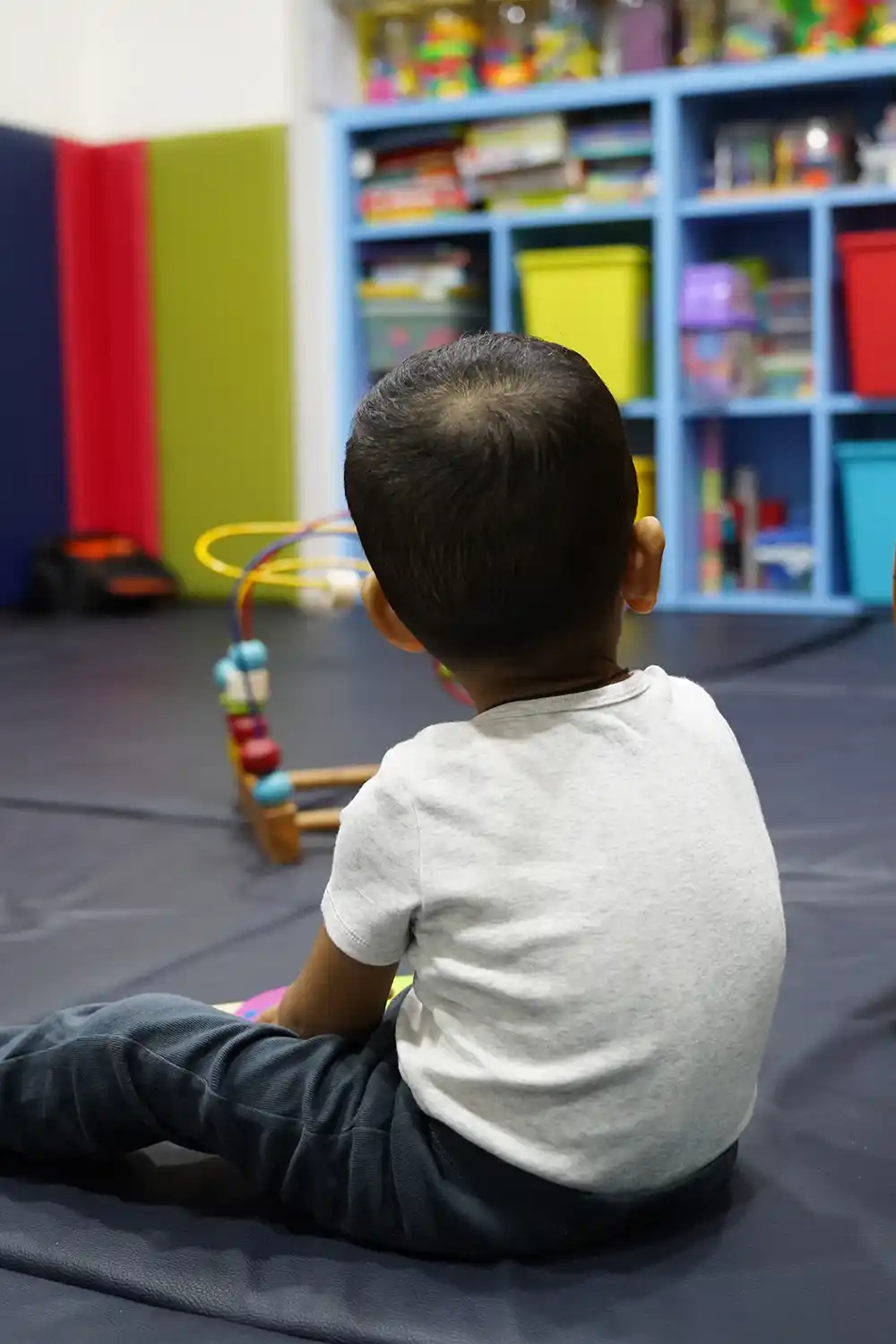
What is Early Intervention
The Early Intervention programme is a structured service designed to support infants and young children who may be at risk or are showing signs of developmental delays. Early Intervention promotes growth in various areas such as sensory-motor, speech and language, social-emotional, and cognitive development.
Why Early Intervention
- The connections in a baby’s brain are most adaptable in the first three years of life. These connections are the foundation for learning, behaviour, and health.
- Early intervention is vital as it maximises a child’s developmental potential, improves long-term outcomes, supports families, and encourages early learning.
- Early Intervention is most impactful when there is a multidisciplinary team consisting of occupational therapists, speech and language therapists, special educators, physiotherapists, a developmental paediatrician, paediatric neurologist, and parents/caregivers.
Our Process
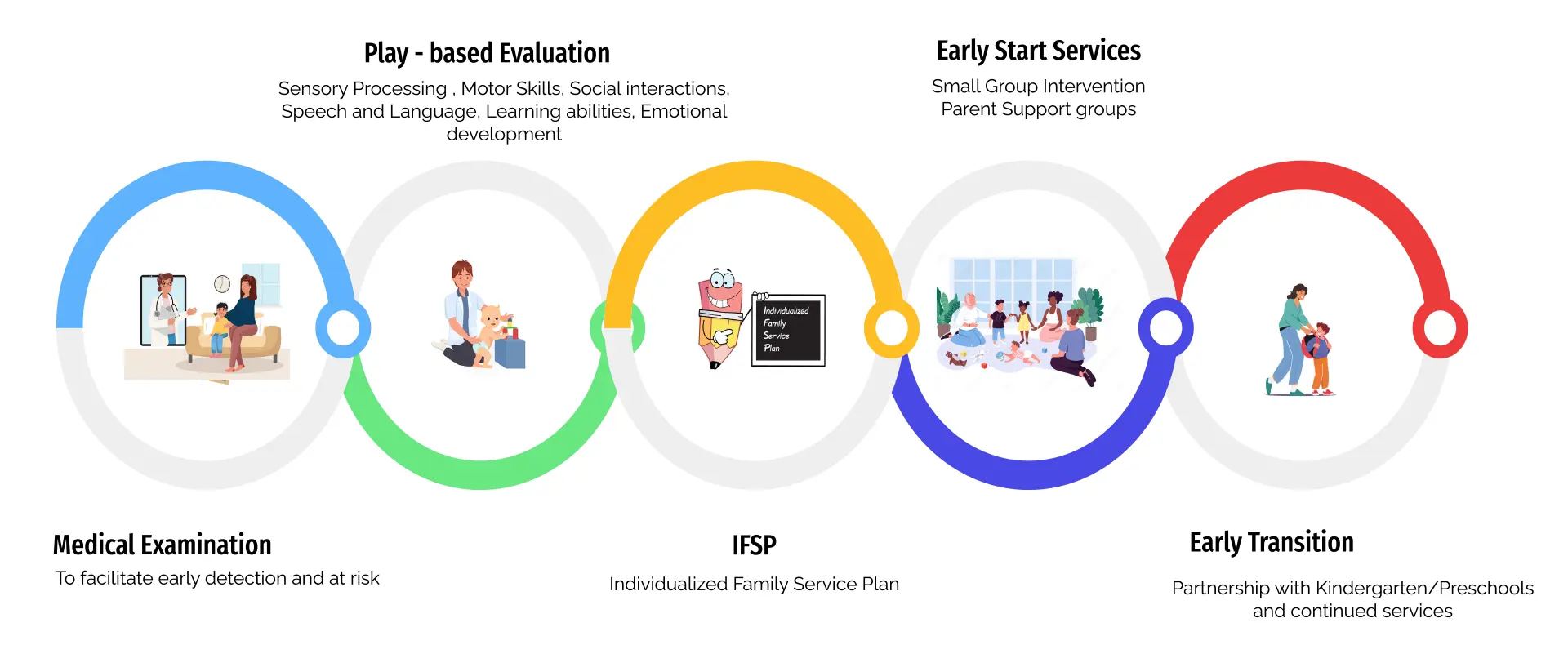
Our intake process for early intervention services is designed to be thorough, compassionate, and tailored to the unique needs of each child and family. The process unfolds in five key steps to ensure that children receive the best possible start in their developmental journey.
Step 1: Medical Evaluation
The first step in the intake process is a comprehensive medical evaluation. This will include a review of the child’s medical history, a physical examination, and assessments by a developmental pediatrician or other healthcare professionals.
Step 2: Play-Based Evaluation
Following the medical evaluation, the child will undergo a play-based evaluation. During this stage, a team of specialists observes the child in a playful environment to assess key developmental areas such as sensory processing, motor skills, speech and language, social-emotional skills, and cognitive abilities.
Step 3: Individualized Family Service Plan (IFSP)
Based on the information gathered in the medical and play-based evaluations, a tailored Individualized Family Service Plan (IFSP) is created. The IFSP will be coordinated through a collaborative and team-based approach with a focus on the child’s specific needs and goals for intervention. It includes Early Intervention Milestones (EIMs) that we aim to achieve through the Early Intervention services. It is designed to be a flexible, evolving document that is reviewed and updated regularly to ensure that the child’s developmental progress is tracked.
Step 4: Start Early Services
The Early Start services include small group intervention for the child that is designed to help the child meet their developmental milestones. The group learning allows for opportunities to build joint attention, play skills, social and communication skills with peers which helps lay the foundation for school readiness. The small group intervention services are conducted by a team of special educators, occupational therapists, physical therapists, speech and language pathologists and counsellors. The Parent support groups provide families a safe space to share experiences, ask questions, connect, gain emotional support, and learn more about their child’s needs and development. These services work in tandem to ensure that both the child’s developmental needs and the family’s needs are addressed.
Step 5: Early Transition
As the child is ready for the next phase of learning, a transition to preschool, other educational settings or continued Early Intervention Services is planned.
Our Curriculum Framework
Our Early Intervention Curriculum is carefully designed to address the key areas of a child’s development during the crucial early years, focusing on enhancing skills across multiple domains.
TGIC’s Early Intervention Program focuses on Eight Developmental areas of Learning:
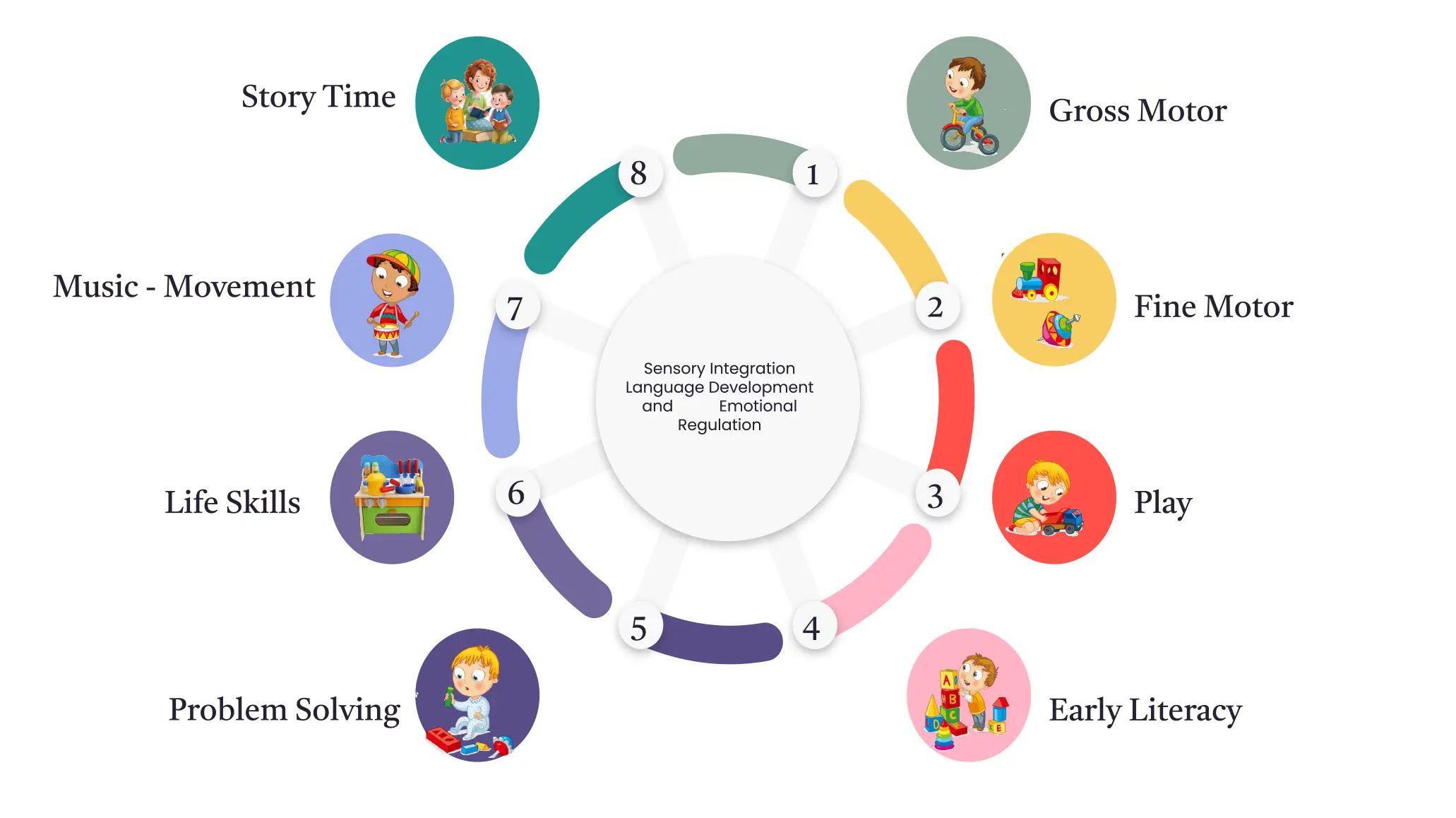
Gross Motor
Gross motor skills involve the large muscles of the body and are essential for tasks such as walking, running, jumping, and balancing.
Problem-Solving
Problem-solving is a critical cognitive skill that helps children navigate challenges in everyday life. Our curriculum incorporates activities that encourage children to think critically, make decisions, and find solutions to simple problems.
Fine Motor
Fine motor skills involve the small muscles in the hands, fingers, and wrists, essential for tasks like writing, drawing, feeding, and dressing.
Life Skills
Life skills focus on the practical abilities children need to care for themselves, navigate their environment, and become independent. Our curriculum introduces foundational life skills such as brushing teeth, washing hands, dressing, cleaning up after play, and following simple routines.
Play
Play is a vital part of a child’s development and learning. Our curriculum provides opportunities for both structured and unstructured play, promoting social skills, creativity, imagination, and emotional regulation.
Music - Movement
Music plays a vital role in early childhood development, enhancing cognitive, emotional, and social skills. Our curriculum integrates music and movement to help children develop rhythm, coordination, and auditory discrimination.
Early Literacy
Early literacy is the foundation for future reading and writing skills. Our curriculum encourages children to develop an interest in books, letters, and language.
Story Time
Story Time focuses on fostering a love for books and developing early literacy skills through interactive and engaging reading experiences.
Explore our services through the visuals below:
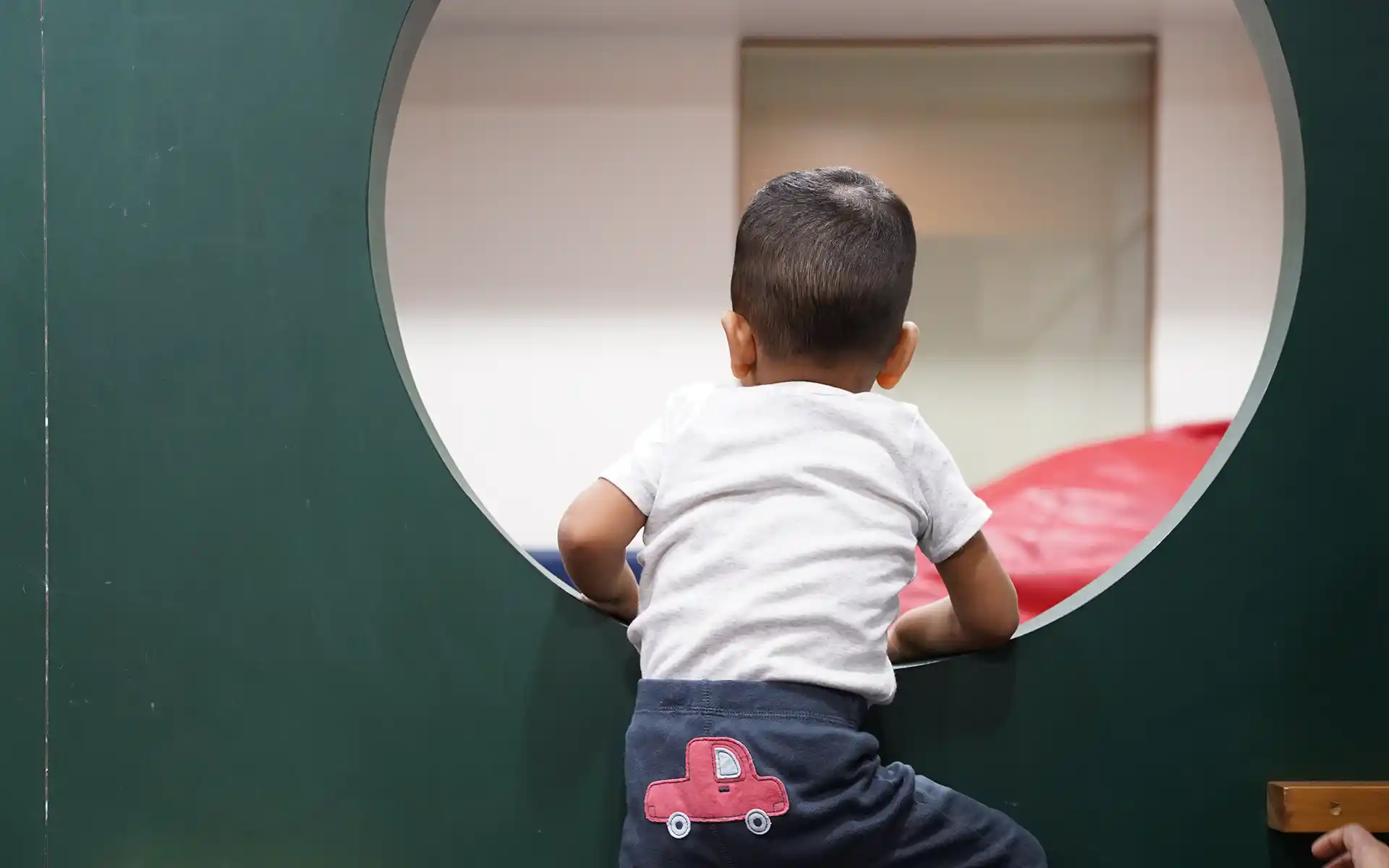
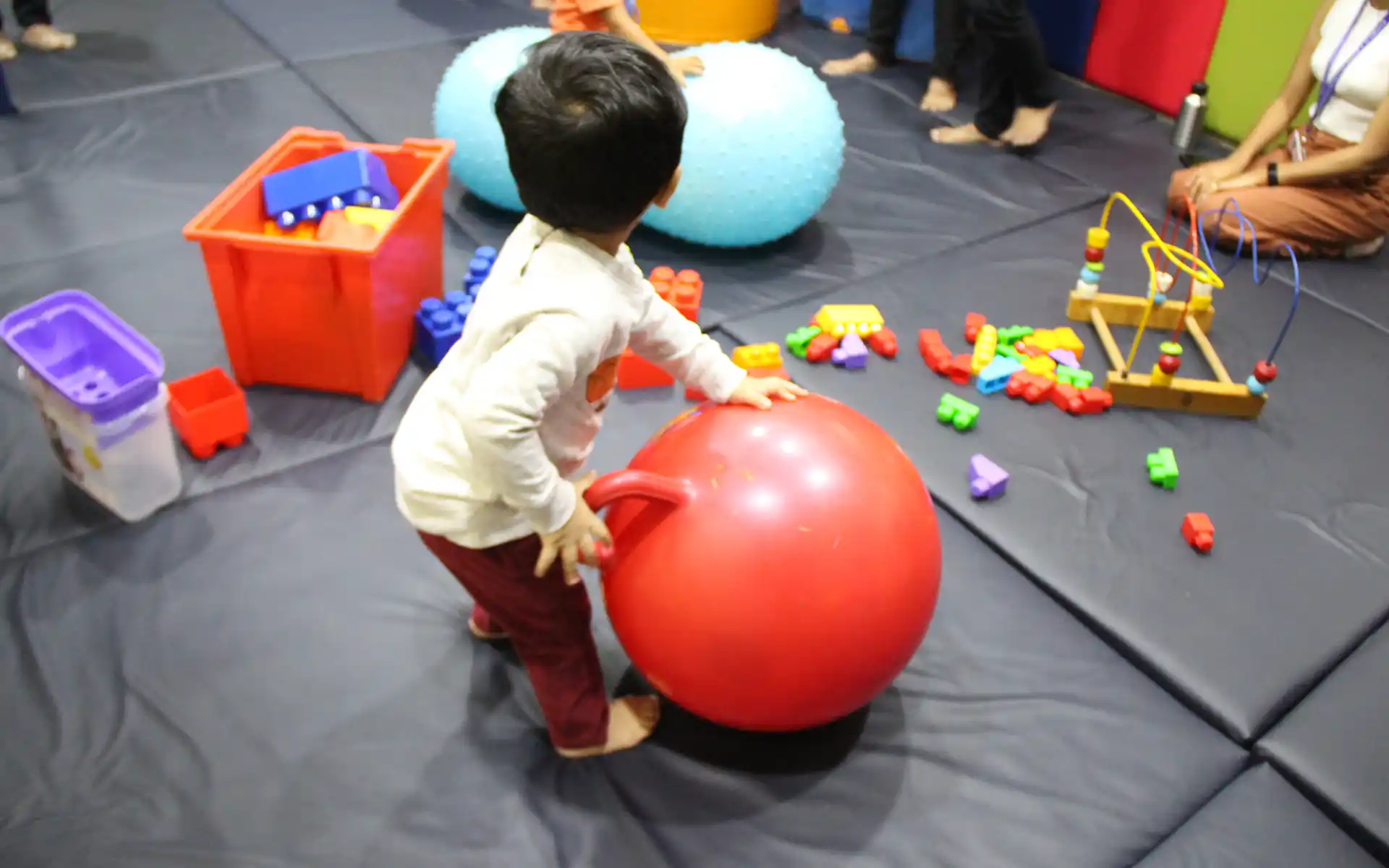
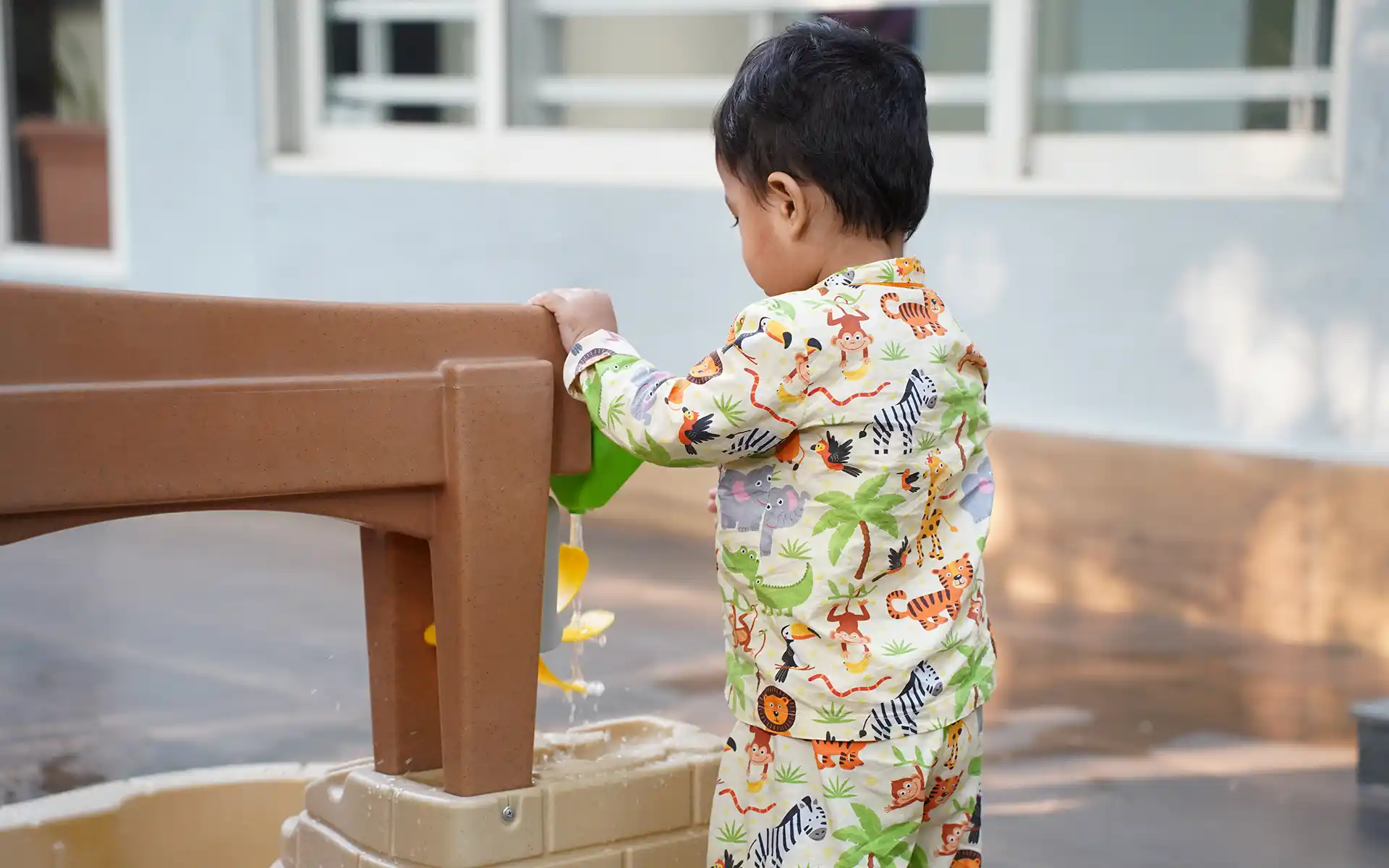
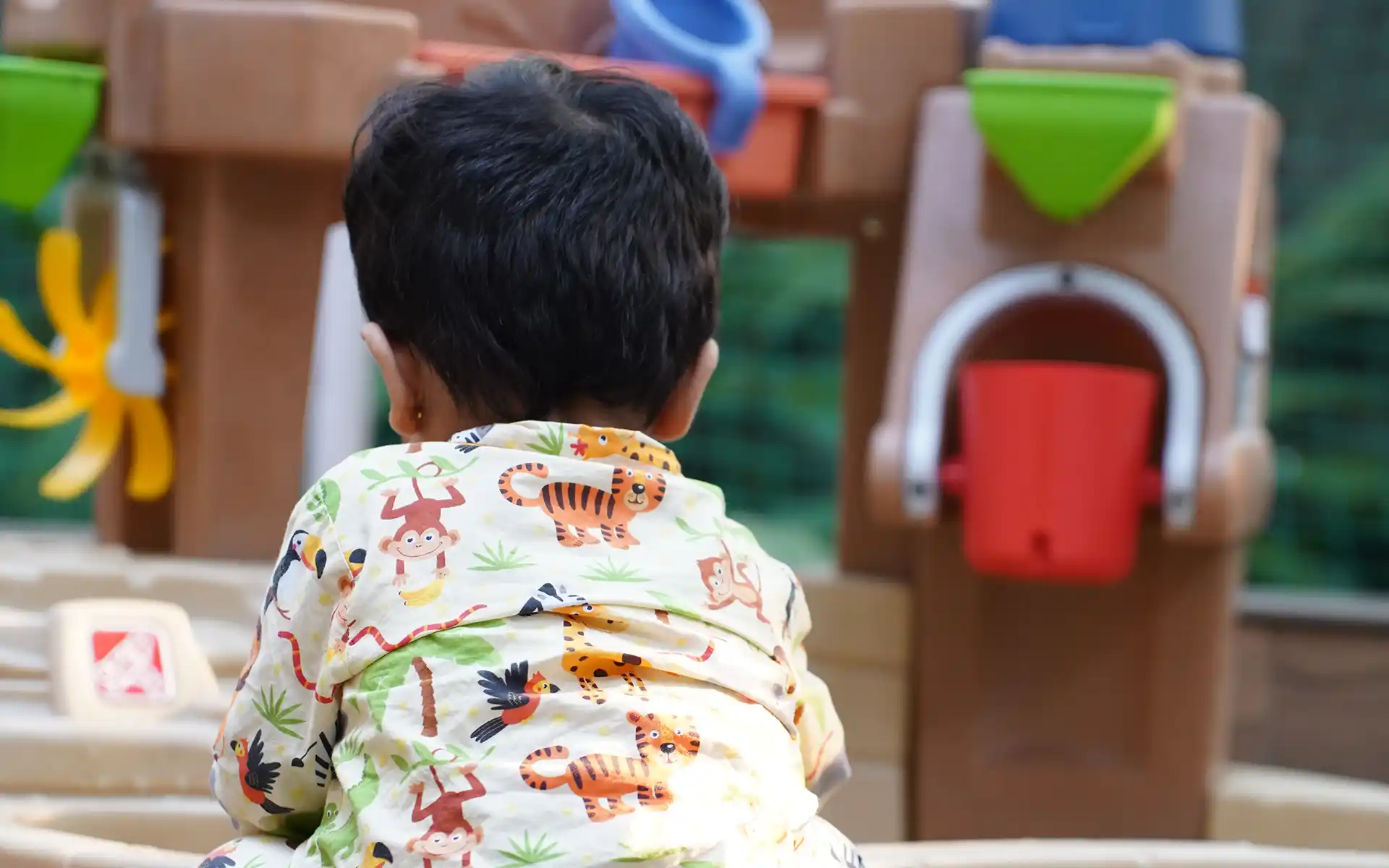
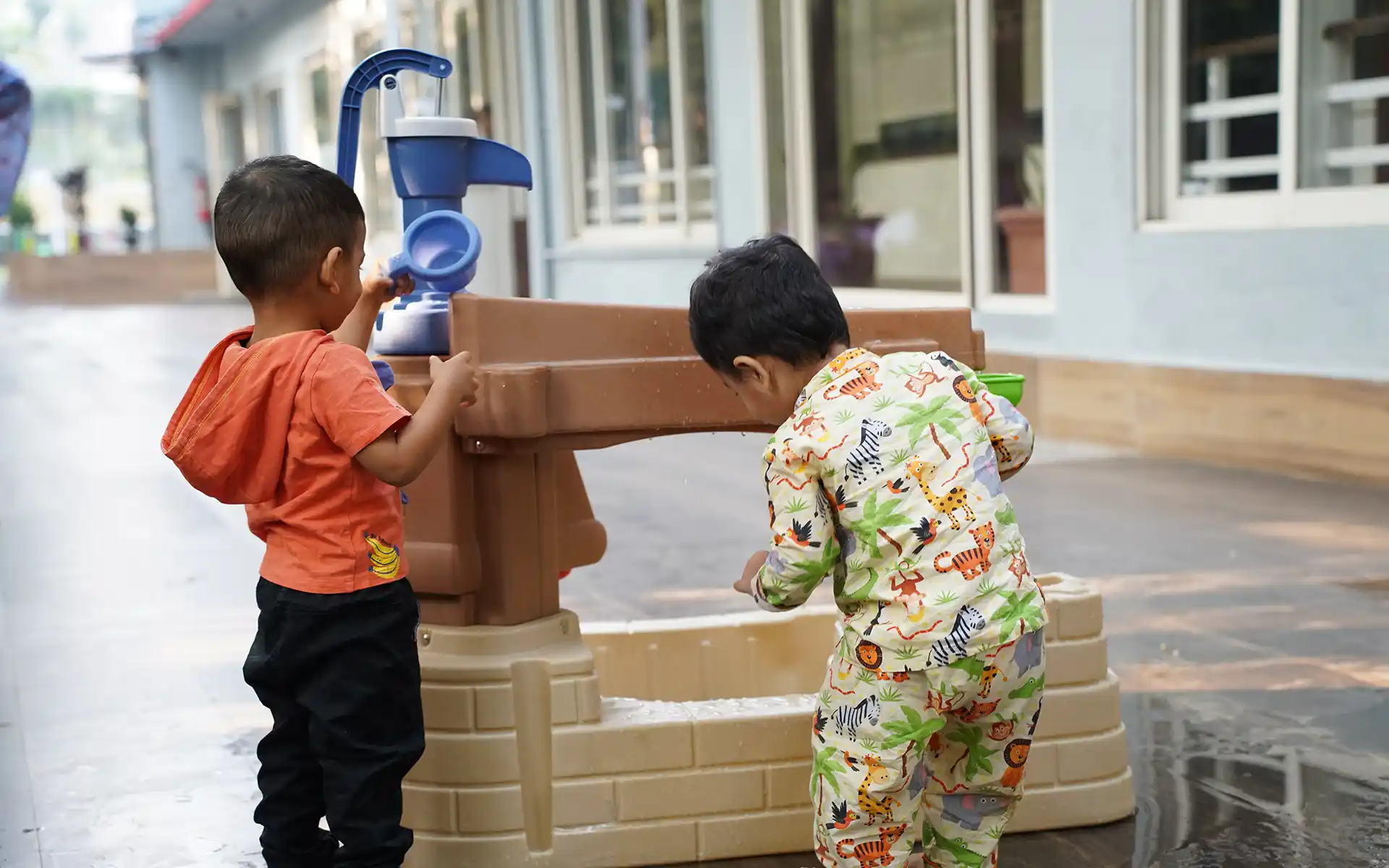
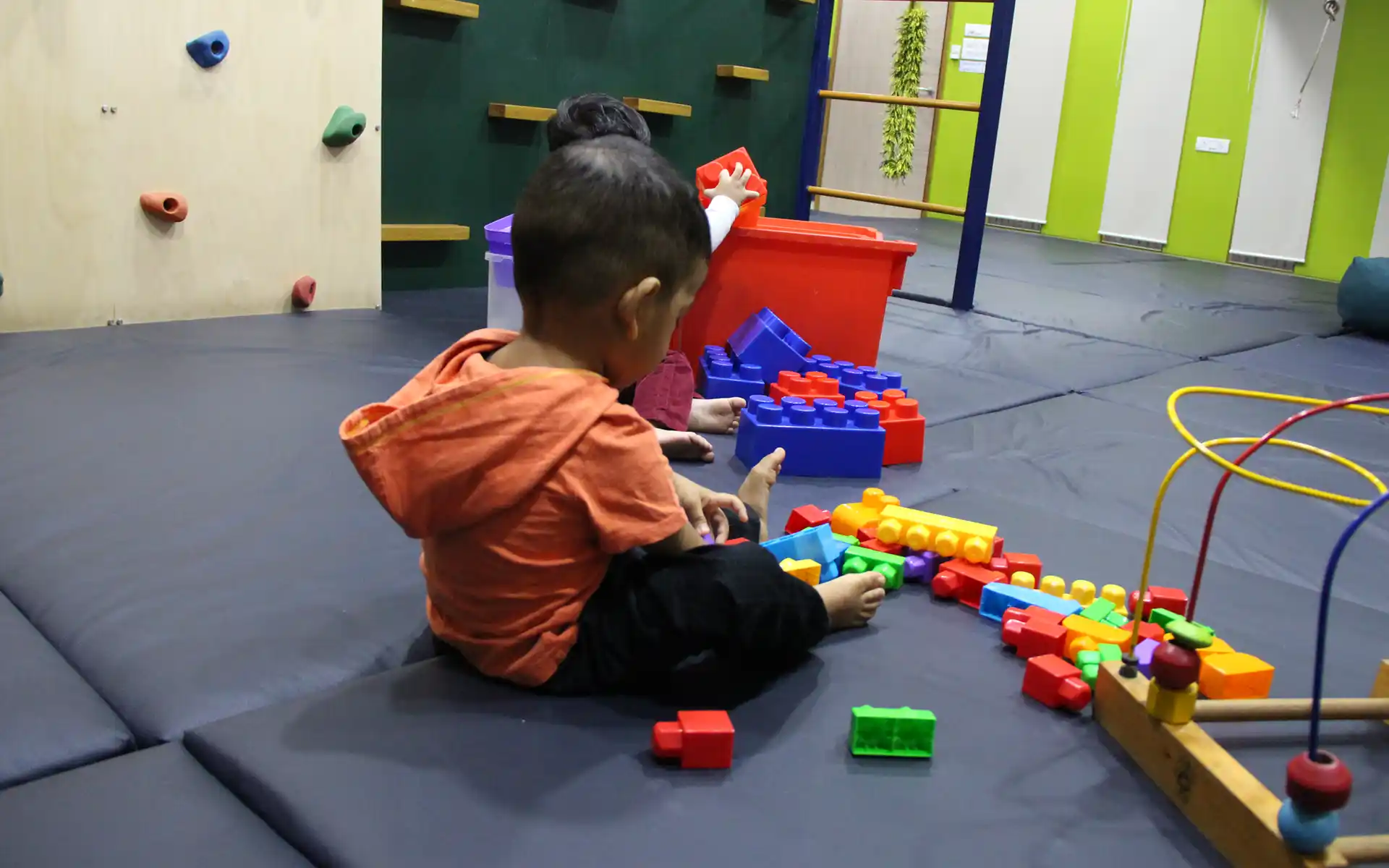



Inspiring potential -
for all


The Early Intervention programme at TGIC is a structured service designed to support infants and young children who may be at risk or are showing signs of developmental delays. Early intervention promotes growth in various areas such as sensory-motor, speech and language, social-emotional, and cognitive development.
The connections in a baby’s brain are most adaptable in the first three years of life. These connections are the foundation for learning, behaviour, and health. Early intervention is vital as it maximises a child’s developmental potential, improves long-term outcomes, supports families, and encourages early learning. It is most impactful when there is a multidisciplinary team consisting of occupational therapists, speech and language therapists, special educators, physiotherapists, a developmental paediatrician, paediatric neurologist, and parents/caregivers. TGIC has just such a team with the required training and expertise to support your child and your family.
We begin with a medical examination to facilitate early detection and then do a play-based evaluation to assess the child’s sensory processing, motor skills, social interactions, speech and language, learning abilities, and emotional development. After completing these evaluations, we provide an individualised family service plan and start small group intervention and parent support services. Subsequently, we work on early transition by partnering with kindergartens and preschools while continuing our services.
Early Intervention at TGIC is a 12-week programme which takes place thrice a week. Children aged 1 to 5 years are eligible to join.





